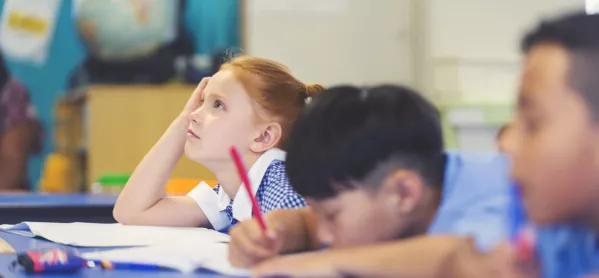I don’t have enough time to worry too much about how secondary schools will operate from September - I’ve enough on my plate waiting for and then interpreting the guidance that comes out for primary schools.
But I feel pretty certain that fairly high up on the lists of priorities for secondary headteachers will be the challenges of awarding GCSE results this year; what I suspect they’re less concerned about is the availability of key stage 2 test data.
In fact, I suspect that pretty much no one is really worried about that in the grand scheme of things.
It’s tempting, then, to think that we should just abandon Sats altogether.
Don’t leap to conclusions
There are plenty who will argue exactly that.
Buoyed by the recent deferral of the statutory baseline assessments in Reception classes, there will be a concerted effort, no doubt, to argue that all statutory assessments should be scrapped and teachers know best so we should just leave it at that.
Tempting, but not advisable.
For a start, despite the claims of campaigners, there’s no evidence that the Reception baseline has been delayed for any other reason than the practicalities of administering it in the current context.
This isn’t the first stage of a retreat from the principle of national assessments; if anything, vocal opposition probably made its deferral harder to approve in the corridors of power.
It’s equally unwise, therefore, to think that a campaign to scrap Sats would have any success.
The coronavirus pandemic may well have changed a great deal about the circumstances of schooling, but it’s a leap to conclude that it means testing should be scrapped.
Why we need testing
The argument likely to be made is that comparing the 2021 Year 6 cohort to any previous cohort would be unfair, given the upset of the past few months.
How could it possibly be right to give children a grade when they missed out on parts of the curriculum? And if we were talking about GCSE grades I could see some merit in that case. But we’re not.
The government’s stated purpose of Sats is to assess the work of schools and the wider system.
We don’t know what impact the pandemic will have had on the progress of pupils, but we ought to find out - and the tests would be one part of that picture.
If we do find that children score less well than in previous years, then perhaps that gives us an indication of the effects, as well as the actions we need to take.
Rethink assessment
That’s not to say that it should be business as usual. There will clearly be differences between the impact in different households, communities and schools.
But that doesn’t mean we need to abandon assessment; rather we should use this as an opportunity to tackle the bigger problem surrounding national assessments: the issues of publishing results and using them to compare schools.
The tests are not the problem; the high-stakes use of the data is where the real damage is done.
By reducing the focus on comparisons between such different contexts, we could return test results to being used for their proper purpose without such deleterious effects.
Given the challenges of 2020, let’s argue - as a profession - that things do need to be different next year. Tests might be part of building the picture, but published results don’t need to be.
There will be little to be gained in producing league tables and comparisons after such a tumultuous period.
Fighting against the tests themselves is bound to be a losing battle, but challenging the need to publish results might just have the long-term impact that will mean real change.




